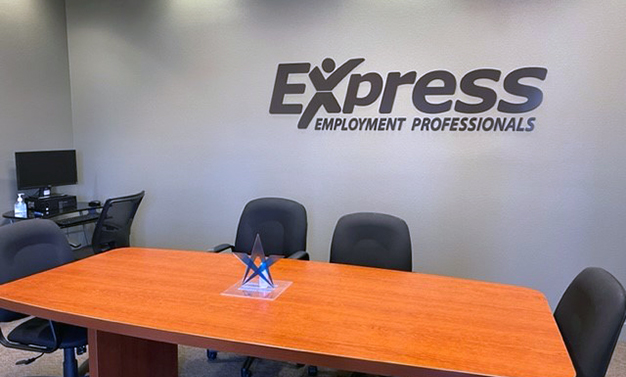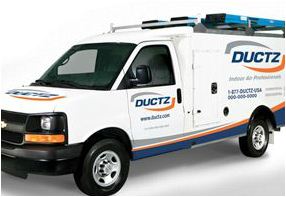Can I sell my franchise to someone else? Yes, you can sell a franchise to someone else, but the process […]
Pizza Franchise: A Guide to Choosing
The profitability of a pizza franchise can vary widely depending on several factors, including the brand, location, management, and market conditions. Here are some key considerations:
- Brand Recognition: Well-established and recognized brands often have an advantage in terms of customer trust and loyalty. A popular and reputable pizza franchise may attract more customers and generate higher profits.
- Location: The success of a pizza franchise is heavily influenced by its location. A high-traffic area, proximity to residential areas, and competition in the vicinity can all impact sales.
- Operating Costs: Controlling operational expenses, such as rent, utilities, labor, and food costs, is crucial for profitability. Efficient management and cost control measures contribute to a healthier bottom line.
- Marketing and Advertising: Effective marketing and advertising strategies can significantly impact sales. Franchisees who invest in local marketing initiatives and promotions may experience higher profitability.
- Competition: The level of competition in the area can affect the profitability of a pizza franchise. If there are many competing pizza establishments, it may be more challenging to capture a significant market share.
- Franchise Fees and Royalties: The fees and royalties charged by the franchisor can affect profitability. Franchisees must factor in these costs when evaluating the overall financial performance. More fee information
- Economic Conditions: Economic factors, such as recessions or economic downturns, can influence consumer spending habits. A strong and resilient brand may fare better during challenging economic times.
- Quality of Management: The skill and effectiveness of the franchisee and their management team play a crucial role. Strong leadership, effective operations, and customer service contribute to long-term success.
 The cost of a pizza franchise can vary significantly depending on the brand, location, and other factors. Generally, the initial investment for a pizza franchise can range from tens of thousands to several hundred thousand dollars. It's important to note that these figures are just the initial costs and do not include ongoing expenses such as royalties, advertising fees, and operational costs.
The cost of a pizza franchise can vary significantly depending on the brand, location, and other factors. Generally, the initial investment for a pizza franchise can range from tens of thousands to several hundred thousand dollars. It's important to note that these figures are just the initial costs and do not include ongoing expenses such as royalties, advertising fees, and operational costs.
Different franchises may have different fee structures, and some may offer lower-cost options for smaller or less-established markets. Here are some very rough estimates:
- Smaller or Local Chains: Some local or smaller pizza chains may have lower initial franchise fees, potentially ranging from $50,000 to $150,000.
- Larger National Chains: Well-known national pizza chains often have higher initial investment requirements, ranging from $100,000 to $500,000 or more.
These figures are ballpark estimates, and it's crucial to check the specific franchise disclosure documents (FDDs) of the franchises you are interested in for accurate and up-to-date information. The FDD provides detailed information about the costs, fees, and obligations associated with a particular franchise.
Keep in mind that the initial franchise fee is just one part of the overall investment. Franchisees will also need to consider costs such as leasehold improvements, equipment, inventory, working capital, and ongoing royalty and advertising fees.
Several pizza chains have achieved significant success which can be measured in various ways, including revenue, market share, customer satisfaction, global reach and recognition.
Some of the globally well-known and successful pizza chains include: 
- Domino's Pizza: Domino's is one of the largest pizza chains globally. It has been successful in implementing innovative marketing and technology strategies, such as online ordering and the "Domino's Tracker," to enhance the customer experience.
- Pizza Hut: Pizza Hut is another major player in the global pizza industry. It is known for its diverse menu offerings beyond pizza, including pasta and wings. Pizza Hut has a significant international presence.
- Papa John's: Papa John's is recognized for its commitment to using high-quality ingredients. Like its competitors, Papa John's has a strong online presence and delivery services.
- Little Caesars: Little Caesars is known for its "Hot-N-Ready" pizza, offering a quick and affordable option for customers. It has a global presence and is often praised for its value proposition.

- California Pizza Kitchen: While not as large as some of the others, California Pizza Kitchen (CPK) is known for its innovative and diverse menu, including a variety of non-traditional pizza options.
Choosing a pizza franchise involves careful consideration of various factors to ensure that the franchise aligns with your goals, preferences, and the local market. Here are key factors to consider when selecting a pizza franchise:
- Franchise Costs: Evaluate the initial franchise fee, ongoing royalties, and any other fees associated with the franchise. Consider your budget and financial capacity to meet these requirements.
- Total Investment: Beyond the initial franchise fee, consider the total investment, including costs for leasehold improvements, equipment, supplies, and working capital. Ensure you have a clear understanding of all financial commitments.
- Franchise Terms: Review the terms of the franchise agreement carefully. Understand the length of the agreement, renewal options, and any conditions for termination.
- Brand Reputation: Research the reputation of the franchise brand. Positive brand recognition can contribute to customer trust and loyalty, potentially impacting your business's success.
- Support and Training: Assess the level of support and training provided by the franchisor. A comprehensive training program and ongoing support can be crucial, especially if you are new to the industry.
- Market Demand: Analyze the local market to determine the demand for pizza and the level of competition. Consider factors such as population density, demographics, and consumer preferences.
- Menu and Differentiation: Evaluate the franchise's menu offerings and any unique selling points or differentiators. A diverse menu and innovative options may set a franchise apart in a competitive market.
- Location: Consider the importance of location. A well-chosen and strategically located store can significantly impact foot traffic and sales.
- Franchisee Reviews: Seek feedback from current and former franchisees. Their experiences can provide valuable insights into the support provided by the franchisor, potential challenges, and overall satisfaction.
- Terms of Renewal and Exit: Understand the terms and conditions for renewing your franchise agreement. Additionally, consider the exit options if you decide not to renew or wish to sell the franchise.
- Adaptability to Local Tastes: Some successful franchises have the flexibility to adapt their menu to local tastes. Consider whether the franchise allows for customization based on the preferences of your target market.
- Legal and Regulatory Compliance: Ensure that the franchise operates in compliance with local, state, and national regulations. Review any legal obligations and restrictions outlined in the franchise agreement.
- Technology and Innovation: Evaluate the franchise's use of technology for operations, marketing, and customer engagement. A franchise that embraces technological innovations may have a competitive edge.

Before making a final decision, it's important to note that while some pizza franchises can be highly profitable, success is not guaranteed, and individual results may vary. Before investing in a pizza franchise or any business, it's advisable to conduct thorough research, including reviewing the franchise agreement, understanding all associated costs, and speaking with existing franchisees to get a sense of their experiences. Consulting with a business advisor or franchise consultant can also provide valuable insights.
Recent Articles
Why a Salad Franchise is a Fruitful Financial Opportunity
Are salad franchises profitable? Salad franchises can be profitable, but success depends on various factors including location, competition, quality of […]
Home-based Franchise: 12 Options You Can Run Remotely
Can you run a franchise from home? Yes, it is possible to run a home-based franchise, depending on the nature […]
Turnkey Business for Sale: What to Know Before You Buy
Are turnkey businesses profitable? The profitability of turnkey businesses can vary depending on various factors such as the industry, market […]
In Business for Yourself.. and Totally by Yourself !
The much used statement, which screams the benefit of buying a franchise: “In Business For Yourself BUT Not By Yourself,” […]
7-Eleven Franchise: What to Know About Owning a Convenience Store
Owning a 7-Eleven franchise involves a unique business model that is somewhat different from other franchising opportunities. Here's an overview […]
























